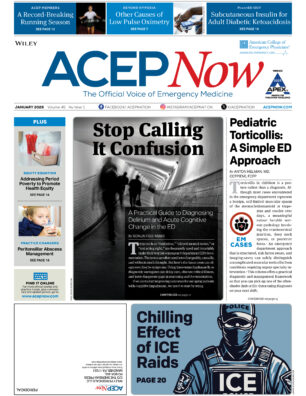For patients with isolated severe traumatic brain injury (TBI), administering tranexamic acid (TXA) en route to the hospital does not appear to be helpful and might be harmful, according to a Dutch study.
“Our study is the first to show that prehospital use of TXA is associated with increased mortality in patients with isolated severe TBI, suggesting that TXA should be used judiciously when no evidence for extracranial hemorrhage is present,” Dr. Patrick Schober of Amsterdam University Medical Center in the Netherlands told Reuters Health by email.
In a report in JAMA Neurology, he and his colleagues note that TXA has been shown to improve survival in injured patients with severe bleeding mainly by preventing exsanguination. However, exsanguination is typically not a primary concern in TBI, particularly isolated TBI, and the association of TXA administration with TBI outcomes remains unclear.
“Previous studies neither provided conclusive evidence to support nor to abandon the use of TXA in such patients,” Dr. Schober said.
To investigate further, the study team analyzed prospectively collected observational data for 1,827 patients treated for suspected severe TBI by the Dutch Helicopter Emergency Medical Services between 2012 and 2017. Their mean age was 45 years; 693 received TXA before hospital arrival and 1,134 did not.
In the unadjusted analysis of the overall cohort, 30-day mortality was significantly higher in patients who received prehospital TXA relative to those who did not (odds ratio, 1.34; P<0.001). The same was true in the 1,375 patients with confirmed severe TBI (OR, 1.34; P<0.001) and the 719 patients with isolated severe TBI (OR, 1.74; P<0.001).
“Notably,” Dr. Schober told Reuters Health, “the treatment was not assigned randomly, such that patients who received TXA systematically differ from those who did not receive TXA; for example, such patients were more severely injured which may explain the higher mortality.”
“Indeed, after rigorous adjustment for such confounding factors in the analysis, an increased mortality after TXA administration was no longer observed in the whole cohort of patients and in patients with confirmed TBI. However, the increased mortality persisted in patients with isolated severe TBI” who received prehospital TXA (OR, 4.49; P=0.005).
In their article, the researchers say these observational data do not allow “causal inferences or conclusions to be made about the mechanism by which tranexamic acid might be detrimental to survival, but this drug may induce a shift of the coagulation system toward hypercoagulability, perhaps involving microthrombi with impairment of the cerebral microcirculation and oxygenation.”
They conclude, “In the absence of higher-level evidence to support the universal use of tranexamic acid for all patients with severe TBI, the data suggest that tranexamic acid should be used judiciously in the prehospital setting. The data do not suggest abandoning the current practice of using tranexamic acid in those patients with extracranial injuries and substantial blood loss. However, in patients with isolated severe TBI, tranexamic acid administration seems detrimental to survival.”
Pages: 1 2 | Multi-Page





No Responses to “Early Administration of Tranexamic Acid Potentially Harmful in Isolated Severe TBI”